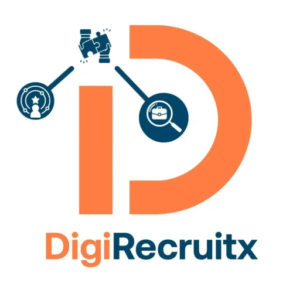Cybersecurity has grown into one of the most critical concerns of the digital era, with threats lurking behind every click, download, and unsecured connection. In this environment, ethical hacking has emerged as one of the most effective tools to fight back. Far from being about breaking rules or causing chaos, ethical hacking is about finding vulnerabilities before the bad guys do—and fixing them. It’s a proactive approach that’s changing how companies build their digital defenses. Whether you’re an IT enthusiast, a business owner, or someone preparing to enroll in a Cyber Security Course in Chennai, understanding ethical hacking can offer serious advantages. Let’s explore how ethical hacking is reshaping modern cybersecurity, and why it’s become an essential line of defense.
What Is Ethical Hacking, Really?
Ethical hacking, also called “white hat” hacking, is the process of legally breaking into computers and devices to test an organization’s defenses. The goal? To find weaknesses before malicious hackers do. Ethical hackers work with permission, follow rules, and report all their findings so systems can be secured. In simple terms, they’re playing offense for the sake of defense. Companies across sectors—finance, healthcare, retail, government—are now hiring ethical hackers to simulate attacks, identify gaps, and improve their security posture. From penetration testing to vulnerability assessments, ethical hacking covers a range of strategies used to protect digital infrastructure.
1. It Helps Identify Real-World Weaknesses
One of the most important contributions of ethical hacking is its ability to uncover vulnerabilities that automated tools might miss. While antivirus software and firewalls are useful, they can’t always detect subtle, layered threats. Human hackers think like criminals—and that’s their superpower.
Example:
An ethical hacker might discover that a company’s web app allows users to upload executable files, which could be used to insert malicious code. Automated scans might overlook this unless properly configured.
Why it matters:
- Prevents real attacks.
- Gives insight into actual threat pathways.
- Helps prioritize security fixes.
2. It Strengthens Incident Response Plans
Ethical hacking not only tests your systems but also your response. By simulating real attacks—like phishing, ransomware, or brute-force intrusions—businesses can assess how quickly and effectively their teams react.
Benefits include:
- Faster identification of breaches.
- Improved communication during incidents.
- Clear roles and protocols for emergencies.
It’s like a fire drill for your cybersecurity system. Without it, you won’t know if your defenses will hold when it matters most.
3. It Builds a Culture of Security Awareness
When ethical hackers conduct penetration tests or security audits, they often work closely with internal teams. This process promotes awareness and accountability among employees. Staff members begin to understand:
- What phishing emails look like.
- Why password hygiene matters.
- How even small actions can lead to big breaches.
In short, ethical hacking transforms cybersecurity from a “tech problem” to a company-wide mindset.
4. It Supports Regulatory Compliance
Many industries are required by law to maintain strict cybersecurity standards. Think healthcare (HIPAA), finance (GLBA), and e-commerce (PCI DSS). Ethical hacking plays a critical role in helping organizations meet these regulatory demands.
How it helps:
- Confirms that systems are secure.
- Provides documentation for audits.
- Highlights gaps that could lead to penalties.
Failing a compliance check can lead to financial losses and reputational damage. Ethical hackers help businesses avoid both.
5. It Prepares Businesses for Emerging Threats
Cyber threats evolve daily. Attackers use AI, machine learning, and increasingly complex methods to bypass security. Ethical hackers keep up with these developments, often even faster than standard security systems can.
With access to the latest tools and underground knowledge, ethical hackers help organizations:
- Adapt to new attack techniques.
- Defend against zero-day exploits.
- Fortify systems before threats become widespread.
Their insights are future-proofing cybersecurity strategies.
6. It Offers Valuable Career Opportunities
As organizations realize the value of proactive defense, the demand for ethical hackers is soaring. Ethical hacking has become one of the most sought-after skillsets in the cybersecurity industry, and certified professionals can command competitive salaries and career growth.
Common certifications include:
- CEH (Certified Ethical Hacker)
- OSCP (Offensive Security Certified Professional)
- CompTIA Security+
7. It Builds Trust with Customers and Partners
In a time where data breaches make headlines, showing that your systems have been ethically hacked and fortified builds confidence. Clients, investors, and partners are more likely to trust companies that take proactive steps to protect data.
Think of it as cybersecurity credibility.
You’re not just reacting to threats—you’re anticipating them. And that goes a long way in business.
Ethical hacking is no longer a fringe concept. It’s a cornerstone of modern cybersecurity—an aggressive, intelligent way to stay ahead of increasingly sophisticated cyber threats. It allows businesses to find and fix weaknesses before they become crises, ensures compliance, and fosters a culture of security throughout the organization.







